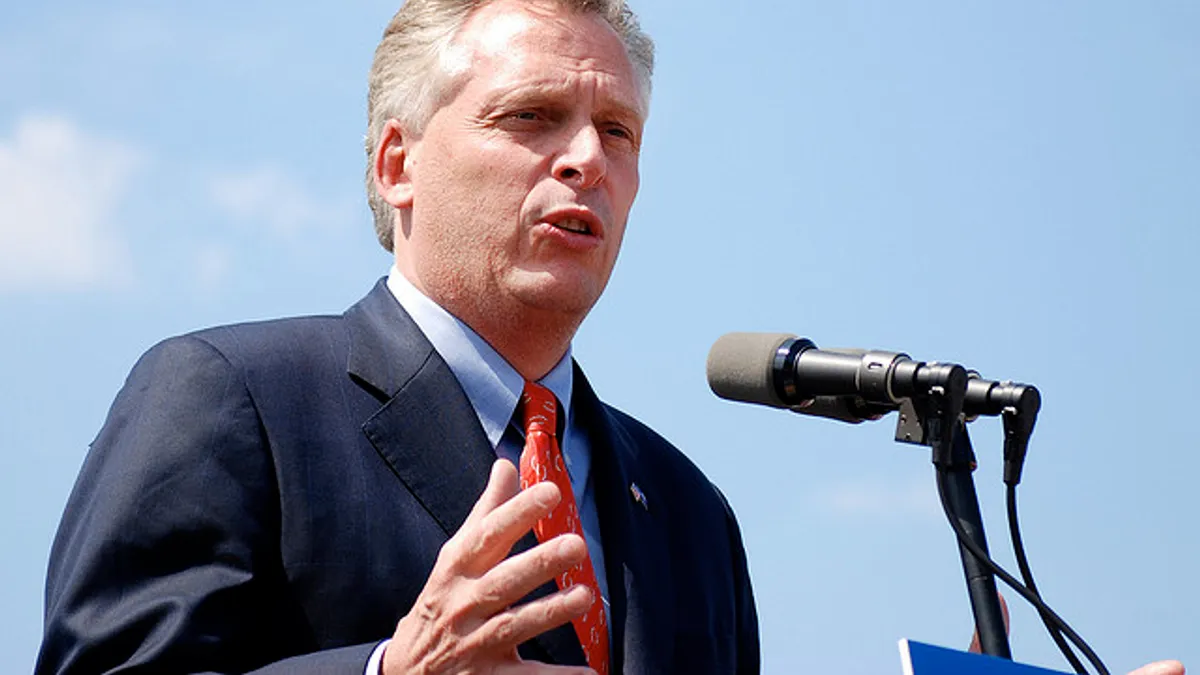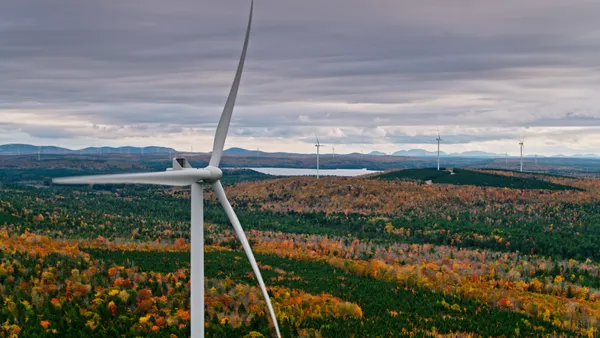Dive Brief:
- Virginia Gov. Terry McAuliffe (D) yesterday signed Executive Directive 11, moving the state closer to placing limits on greenhouse gas emissions from power plants.
- ED 11 instructs the Department of Environmental Quality to begin the process of establishing regulations to reduce carbon emissions from power plants. The move follows up on an executive order McAuliffe signed last year that began the state's examination of carbon pollution from power plants.
- Virginia's push to tackle power sector emissions comes as President Trump has been working to roll back federal energy rules and regulations, particularly the Clean Power Plan, President Obama's carbon rules for existing power plants.
Dive Insight:
McAuliffe's announcement moves Virginia a step closer toward more closely regulating its power plants, and comes as the federal government is moving in the opposite direction.
In a press release and in comments for Huffington Post, the governor stressed that the federal government should be regulating power plant emissions.
“This should be done on the federal level,” he told HuffPo. “But obviously with the pronouncements now coming out of the Trump administration, we cannot rely on them to do it, so we will be taking it into our own hands on the state level.”
This week, the U.S. Environmental Protection Agency asked the U.S. Court of Appeals for the District of Columbia Circuit to indefinitely delay litigation on the Clean Power Plan as it considers changes to the regulations targeting a 32% reduction in carbon emissions from the power sector by 2030. Supporters of the rules argue that would amount to the court nullifying them itself.
McAuliffe said the regulation, once approved, "will reduce carbon dioxide emissions from the Commonwealth’s power plants and give rise to the next generation of energy jobs. As the federal government abdicates its role on this important issue, it is critical for states to fill the void."
McAuliffe framed the new rules in terms of job creation, noting that since his administration began, the state has seen an increase from just 17 MW of solar installed to more than 1,800 MW currently in service or under development, and revenues in the clean energy sector have risen from $300 million to $1.5 billion between 2014 and 2016.
Dominion Energy, the state's politically-powerful investor-owned utility, was guarded in comments on the executive order, telling HuffPo it "appreciates being part of the stakeholder process." The utility does not oppose the Clean Power Plan, and cited compliance costs in a push for a controversial rate freeze in 2015 that critics say will allow it to pocket billions due to decreased regulatory oversight.
The executive order comes less than a week after Virginia Attorney General Mark Herring issued a legal opinion upholding the state' government's ability to issue power sector carbon regulations.















